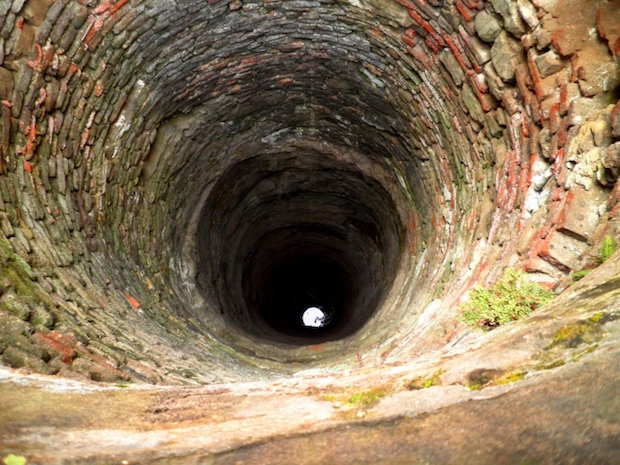Blog

Daily Readings in John, Day Eleven
October 11, 2017
John 4:16-26 (NRSV)
16 Jesus said to her, “Go, call your husband, and come back.” 17 The woman answered him, “I have no husband.” Jesus said to her, “You are right in saying, ‘I have no husband’; 18 for you have had five husbands, and the one you have now is not your husband. What you have said is true!” 19 The woman said to him, “Sir, I see that you are a prophet. 20 Our ancestors worshiped on this mountain, but you say that the place where people must worship is in Jerusalem.” 21 Jesus said to her, “Woman, believe me, the hour is coming when you will worship the Father neither on this mountain nor in Jerusalem. 22 You worship what you do not know; we worship what we know, for salvation is from the Jews. 23 But the hour is coming, and is now here, when the true worshipers will worship the Father in spirit and truth, for the Father seeks such as these to worship him. 24 God is spirit, and those who worship him must worship in spirit and truth.” 25 The woman said to him, “I know that Messiah is coming” (who is called Christ). “When he comes, he will proclaim all things to us.” 26 Jesus said to her, “I am he, the one who is speaking to you.”
What, fundamentally, is going on in this interaction?
Is Jesus shaming her into belief? From the way this passage gets discussed in religious circles, you’d think so. The Samaritan woman – with her five husbands plus one – becomes a picture of a harlot or a serial adulterer whom Jesus needs to call to account before their conversation can proceed.
I think this view says more about the people who hold it than the text. It’s easier to shame a woman than to do a small bit of historical research. And some of us believe in a God that really can’t stand the bad things people do, especially the bad things that have to do with sex, and needs people to feel awful about that before anything good can happen for them.
This woman, though, is an outcast, not a criminal. In 1st century Mediterranean cultures, men held all the cards in relationships with women. Most likely, this is a woman who’d had the men in her life die and had been passed on to the next relative often enough that she was no longer viewed as marriageable. Or, less likely but possible, a woman who’d been divorced and abandoned often enough that again, she wasn’t seen as marriage material.
To the extent that Jesus exposes her, it’s not to shame her but to move forward with his offer – from yesterday’s text – to give her living water, to have her not be thirsty any more.
Their conversation moves through interesting theology – what is worship? what’s the meaning of some Jewish and Samaritan disputes about who holds claim to Jacob’s lineage? – but in the end it’s existential, not theoretical.
Can even the emptiest person become full and satisfied? Can even the most rejected, cast off human be the kind of child of God who belongs, who worships?
Jesus says yes, they can, and I can do it. I’m the one from God to restore you and fill you and to proclaim all things to you.
Who do you know that is in need of restoration and filling? If it’s you, sit with your hands open and invite Jesus to sit with you. If it’s someone else, stand with your hands facing outward and ask Jesus for their blessing.

